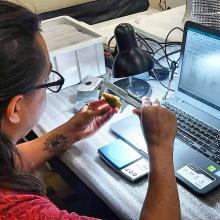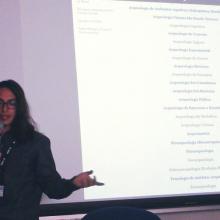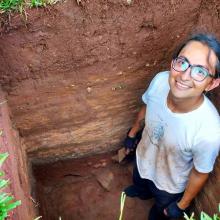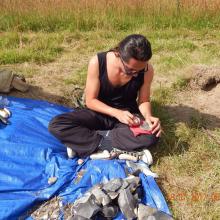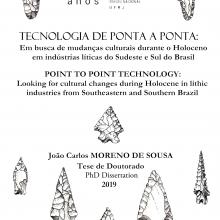
João Carlos Moreno (Bogotá, 1989) (mostly known as JuCa) is Professor of Archaeology in the Federal University of Rio Grande (FURG) and in the Federal University of Paraná (UFPR) where he advises/supervises students in experimental archaeology, lithic technology, geoarchaeology, bioarchaeology and science communication of archaeology. He is the Head of the Laboratory for Experimental and Evolutionary Archaeology and Prehistory (LAPEEX-FURG) and the head of the LEPAN Archaeological Reserve at FURG.
Juca obtained his archaeology undergraduation degree at the Institute of Prehistory and Anthropology of Goiás, in the Pontifical Catholic University of Goiás (Brazil). He obtained a Master’s Degree at the Museum of Archaeology and Ethnology, University of São Paulo (Brazil). In 2019, he obtained a PhD at the National Museum, Federal University of Rio de Janeiro (BR), and part of his PhD was carried out in the University of Exeter (England), working closely with Bruce Bradley at the Laboratory of Experimental Archaeology.
The Masters’s Degree and the PhD projects were both funded by CAPES. Since 2019, he holds a post-doctorate position at the Laboratory for Human Evolutionary Studies, Institute of Biosciences, University of São Paulo (Brazil). His research projects are funded by the following Brazilian funding agencies: São Paulo State Foundation for Research (FAPESP), the National Council for Scientific and Technological Development (CNPq) and the Rio Grande do Sul State Foundation of Research (FAPERGS).
His research focus is lithic technology and replication of lithic collections, through experimental archaeology. Most of his work is centered on the Paleoamerican/Paleoindian cultures, although he has been regularly part of projects dealing with lithic industries from different periods in the Americas, Europe and the African Palaeolithic. He is currently involved in the analysis and replication of lithic tools from hunter-gatherers from Southeastern and Southern Brazil.

